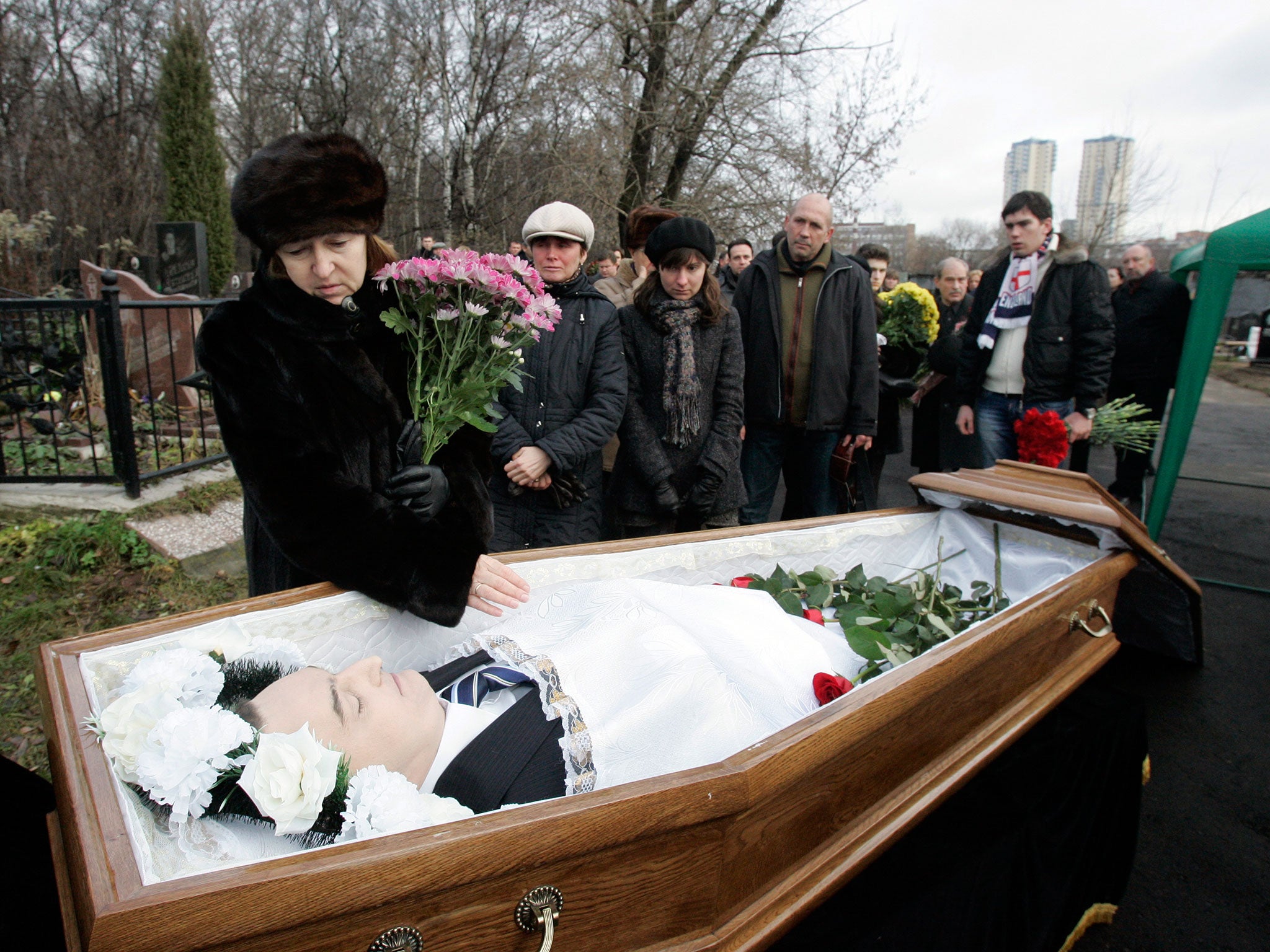Sergei Magnitsky Human Rights Award: Secret ceremony to promote ‘Magnitsky law’
'There will be nine awards for politicians, NGOs and journalists who … have done most for the Magnitsky case'

Your support helps us to tell the story
From reproductive rights to climate change to Big Tech, The Independent is on the ground when the story is developing. Whether it's investigating the financials of Elon Musk's pro-Trump PAC or producing our latest documentary, 'The A Word', which shines a light on the American women fighting for reproductive rights, we know how important it is to parse out the facts from the messaging.
At such a critical moment in US history, we need reporters on the ground. Your donation allows us to keep sending journalists to speak to both sides of the story.
The Independent is trusted by Americans across the entire political spectrum. And unlike many other quality news outlets, we choose not to lock Americans out of our reporting and analysis with paywalls. We believe quality journalism should be available to everyone, paid for by those who can afford it.
Your support makes all the difference.At 12.25 at night, on 16 November 2009, the fund manager Bill Browder was subjected to a terrifying phone message. The voice mail on his BlackBerry vibrated – though as far as he knew no one had his number – and he heard a two-minute recording of a man screaming and pleading while being savagely beaten.
Mr Browder knew at once who the victim was: it was Sergei Magnitsky, his Russian lawyer.
Magnitksy, whom Mr Browder describes as “the bravest man I’ve ever known”, died on 16 November 2009, aged 37, from treatment meted out to him by a well-connected criminal network which had fleeced the Russian taxpayer of millions of pounds.
Tonight Mr Browder is launching the Sergei Magnitsky Human Rights Award. The ceremony will be in central London, but its location is being kept secret until it is over. “That is a security measure, because we have so many people who have been targeted by the Russian regime who will be there,” Mr Browder said.
“There will be nine awards for politicians, NGOs and journalists who … have done most for the Magnitsky case, and in future years for those who have contributed to human rights in Russia.”
Mr Browder had hired the lawyer to help find £150m of tax payments after they went missing. The story began when someone high up in the Russian state took exception to Mr Browder’s company, Hermitage Capital Management, which had made a fortune in Russia as the communist system was being dismantled.
Mr Browder was arrested at Moscow airport in November 2005 as he tried to enter the country, and was bundled on to the first plane back to London. He then discovered that companies he had dealt with, which he knew to be defunct, were being mysteriously bought up.
Eventually, he and his Russian staff uncovered an elaborate fraud. The companies’ new owners claimed that Hermitage owed them money, which was obligingly handed over by a tax official out of the tax Hermitage had paid, until £150m had vanished into the pockets of criminals.
Given the task of hunting the money, Magnitsky courageously refused to leave Russia, despite knowing there were police officers among the conspirators.
He was arrested in November 2008. After nearly a year in Moscow’s Butyrka prison, he received such a beating from eight guards on arrival at a medical centre that a little over an hour later, he died. The Russian authorities put him on trial, posthumously, with Mr Browder as his absent co-defendant – and the court’s verdict was that the pair stole the missing money.
The high point of Mr Browder’s long campaign for justice came in 2012, when the US Congress passed the Magnitsky Act, which gives America the power to withhold visas and freeze the assets of Russian officials suspected of hounding him.
There is no such law in the UK, although Richard Benyon, the Tory MP, is hosting a meeting of the Henry Jackson Society in the Commons on 16 November to discuss whether there should be.
Mr Browder is confident: “The most effective campaigner we have is Vladimir Putin. There are appeasers and those who genuinely believe that Putin is doing good, but as more is known about his actions, it becomes almost impossible for the believers to believe and the appeasers to appease, so opposition to a Magnitsky law is fading.”